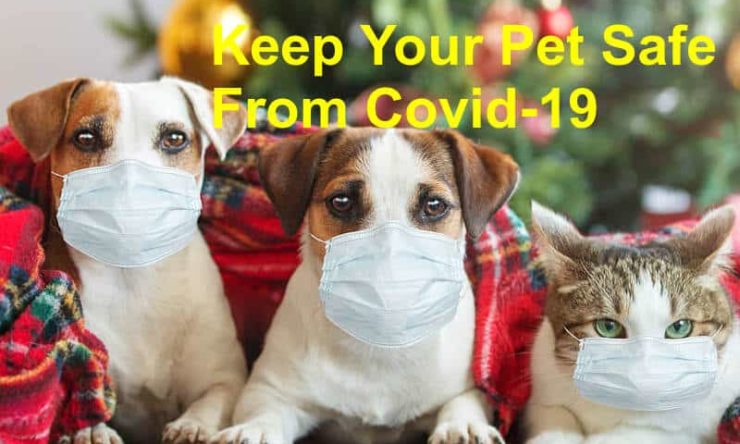Ways To Keep Your Pets Safe From COVID-19
During the current COVID-19 pandemic, as we struggle with social distancing, one thing that stays the same is our love for our pets. But what happens to them if we’re sick? Are they in danger, too? What do you need to do to keep your pets safe from COVID-19? Here’s essential information to keep in mind;
Symptoms of COVID-19 in dogs and cats
Recently, two cats from New York tested positive for coronavirus. And doctors believe they contracted the disease through infection from sick people. Fortunately, the cats only had mild breathing difficulty and will make a quick recovery. This particular case was not surprising to veterinarians and scientists since felines are also vulnerable to coronavirus.
On the other hand, a pug also tested positive in North Carolina. In the same household, three family members tested positive, and it is believed they infected the cat. The symptoms exhibited by the family members were incessant coughing, gagging, and difficulty breathing. But the pug was only sick for a few days and made a quick recovery.
Can dogs and cats be vaccinated against COVID-19?
Currently, COVID-19 vaccines are only available for humans. According to the World Health Organization, the vaccine could be available in 12-16 months. So, since there’s no vaccine designed for our furry friends, you should keep your pets safe to ensure they aren’t at risk of the disease.
How you can keep your pets safe from COVID-19 if you’re infected
If you suspect you have COVID-19, restrict your movements and stay away from your pets as much as possible. If possible, request a friend or family member to care for the pets until you fully recover. Avoid sharing food with your pets and don’t pet them, either. But if you cannot get outside help, then remember to wash your hands after handling your pets.
Is your dog safe from COVID-19 when you visit the Vet?
Veterinary hospices are following all the health guidelines to ensure their patients and clients are healthy and safe. Most vets have reduced elective and wellness procedures, and have cut back staff hours. Additionally, most vets now attend to pets while wearing PPE while others are offering a virtual diagnosis. If you want to visit the Vet, first call ahead and check if they follow the right protocol in line with COVID-19 prevention.
Conclusion
During this time, it’s advisable to keep your pets away from strangers. Try and keep them indoors as much as possible. But if you need to visit the Vet, follow the necessary preventive precautions.
References: Petmd, ASPCA, cdc.gov
Copyright: Local Value


